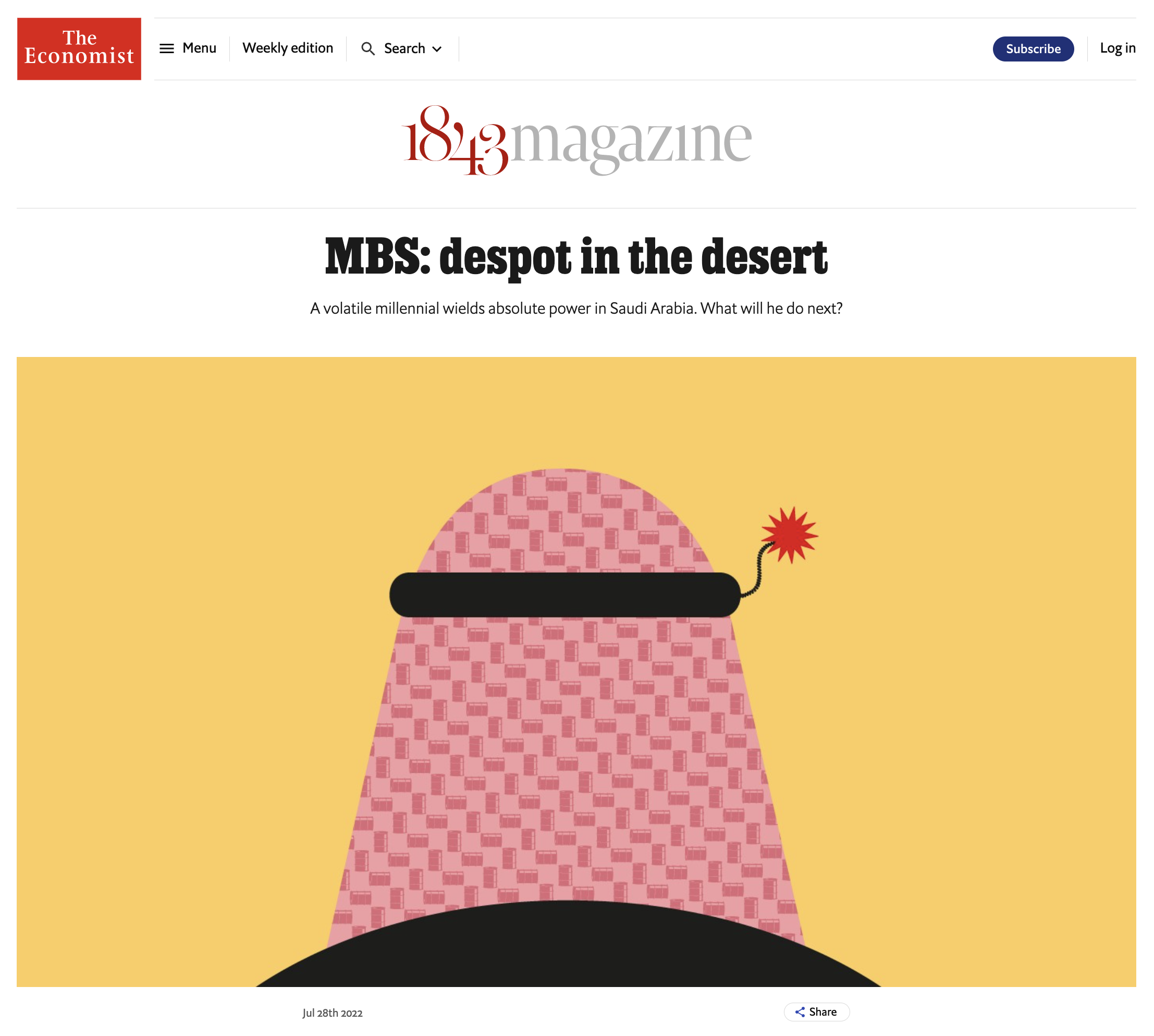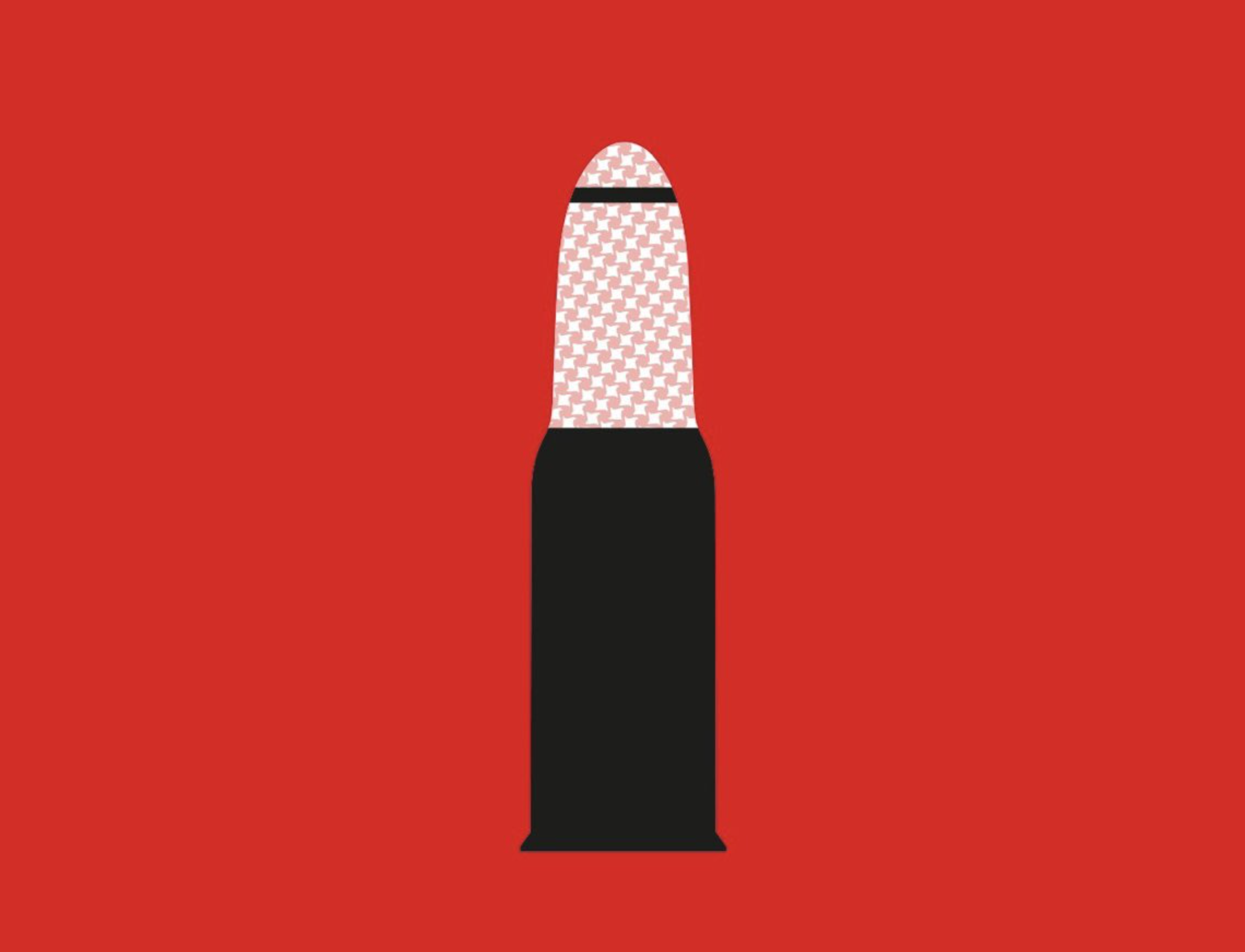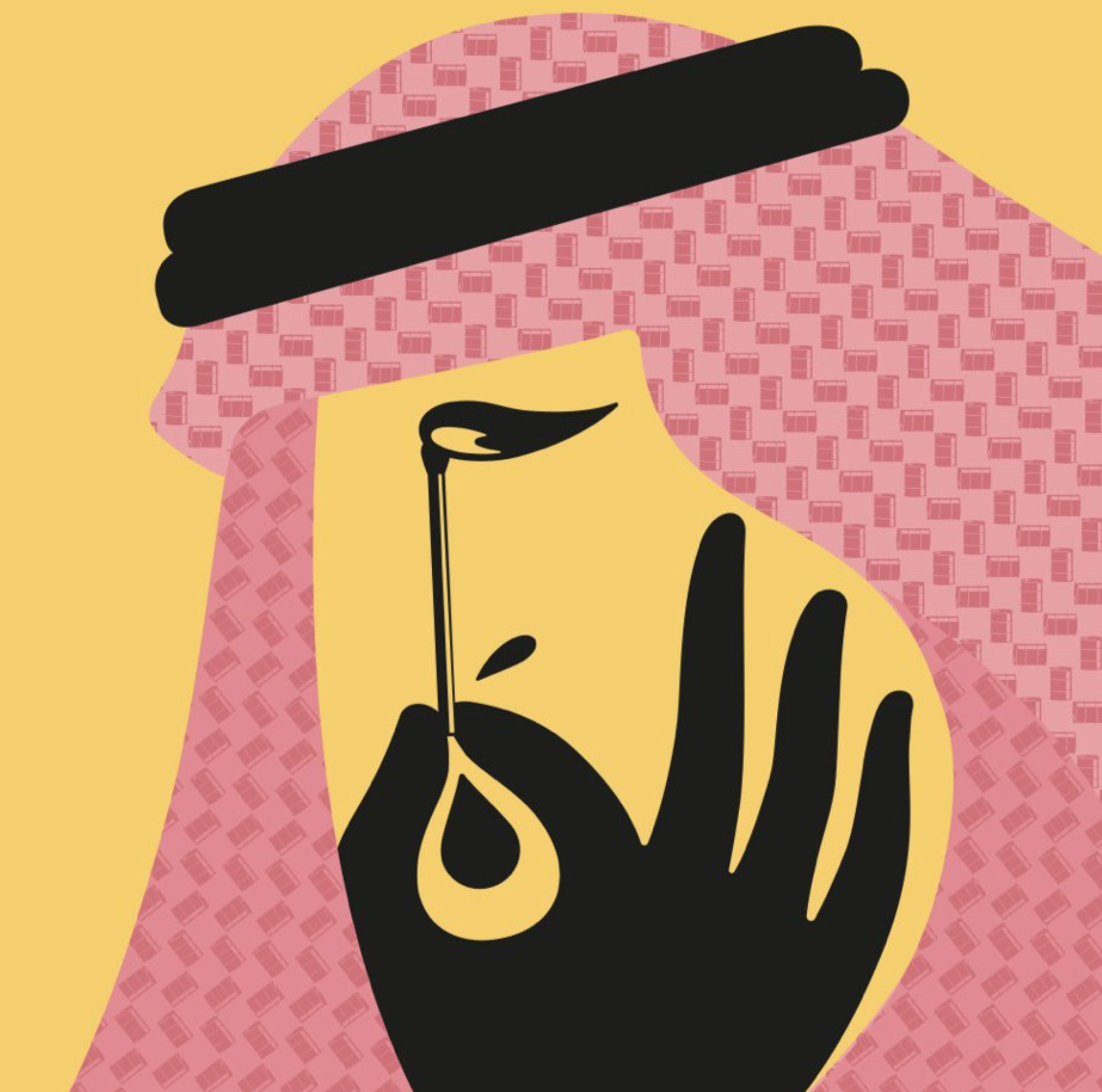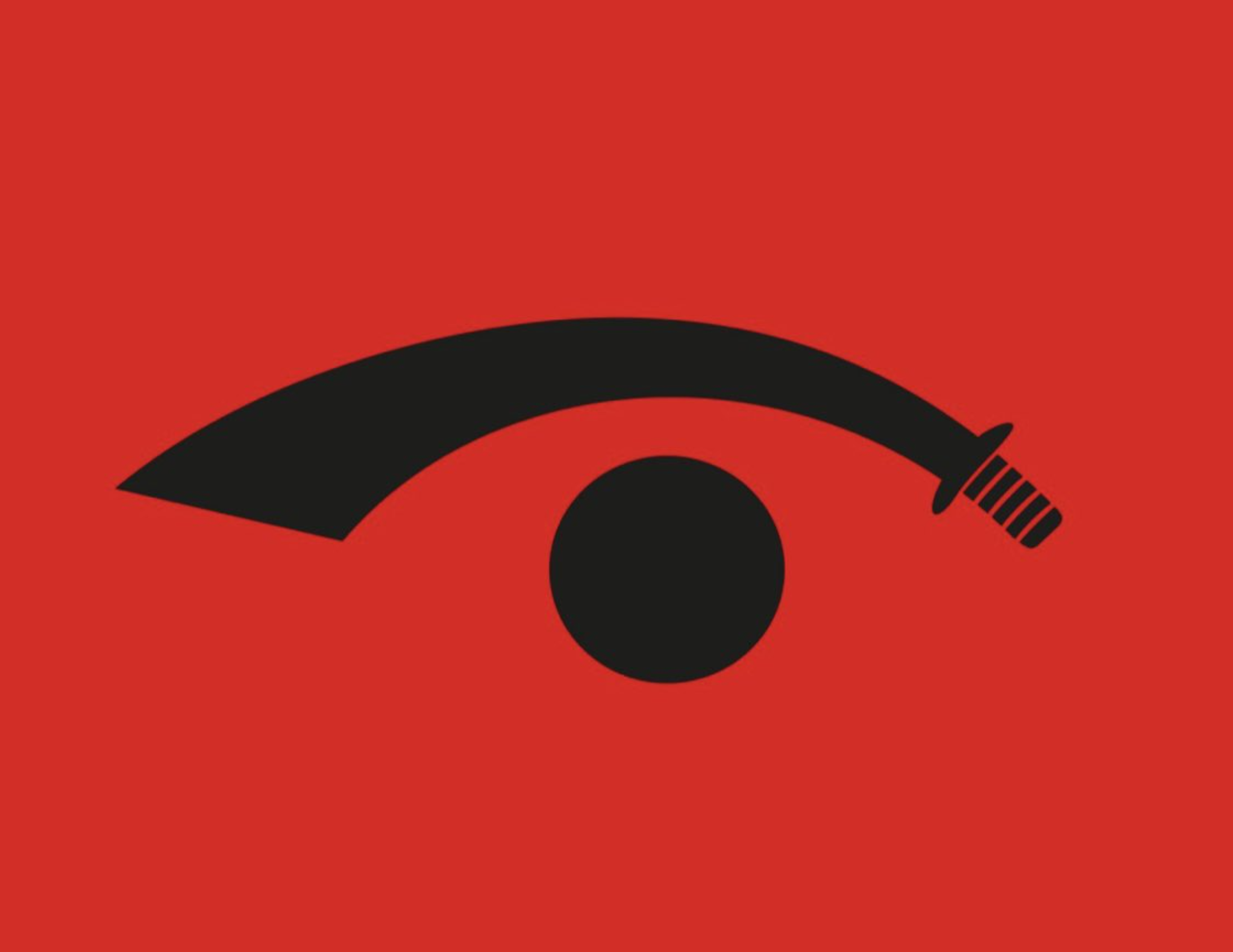Complaint to the Economist - Articles Promoting Islamophobic Stereotypes
The following complaint letter was sent to the Economist about articles they have published which reinforce harmful, Islamophobic stereotypes that Arab men are violent and aggressive, Arab women are oppressed, and portray Arab societies as a monolith.
To whom it may concern,
We, at Media Diversity Institute (MDI), are writing to express concern regarding two articles that have been published on your website on 28 June 2022. Both of these articles use images that reinforce stereotypes about the Arab culture.
The first article, titled “MBS: despot in the desert” features a cover photo of a traditional Gulf attire stylised with an explosive mechanism. The graphic design of the article’s cover photo uses items that are symbolically associated with the Arab culture. The use of such images hints a violent context which reinforces the same negative stereotypes that have been spreading following events such as the 9/11 attacks and the Syrian refugee crisis of 2014. These stereotypes present Arab men as aggressive and prone to violence. An image of an Arab man closely linked with these features reinforces the cycle of vilification that Arab communities face. The images published in your article use emotive messages to draw attention to the article and sensationalise it without taking into account the possible consequences such portrayals may have for Arab communities.
The second article is titled ‘’Why Arab women are fatter than men in the Arab world” and is problematic on many different levels. The article’s content attacks the Arab communities through fat-shaming. The phrase “women in Arab countries”, used repetitively without any deeper context or specific examples, spreads stereotypes by generalising an ethnic group that lives in 22 different countries and in the diaspora. With the exception of a reference to obesity among women in Iraq, the article treats Arabs as a homogenous mass. Obesity is a complex issue that affects modern societies; however, emphasis and generalisation of one group can lead to stereotypes. In addition, associating the lack of women in sports with the article’s overall theme and referencing the headscarf and other attire related to religion without providing context exacerbates religious stereotypes about Arab women and Arab societies. The last thing worth to mention is the explicit misogyny of the whole article with its Western-centric twist.
Publishing superficial summaries without deep and contextual reporting, based on selective statistics to amplify a message, reinforces negative stereotypes and bias against Muslim communities in the world. Although a journalist’s obligation is to raise issues and report on questionable practices, the graphics used in the first article in question, as well as the text and style in the second article, misinform the reader and use sensationalism to increase readership – something that goes against the principles of ethical journalism.
MDI works internationally to encourage inclusive and sensitive media coverage and to promote diversity. We have recently published a ‘’Linguistic guideline to Islamophobia” which we would like to recommend as a reading in order to avoid stereotypical reporting in the future. We have been at the frontline of the fight against discrimination in new and traditional media. We also lead Get the Trolls Out!, a European project that aims to counter discrimination within the media. Part of this project includes monitoring the media in several European countries for anti-religious hate speech. We are pro-monitoring and pro-accountability and will call out only hateful and inflammatory reporting.
We look forward to hearing from you.
Media Diversity Institute





